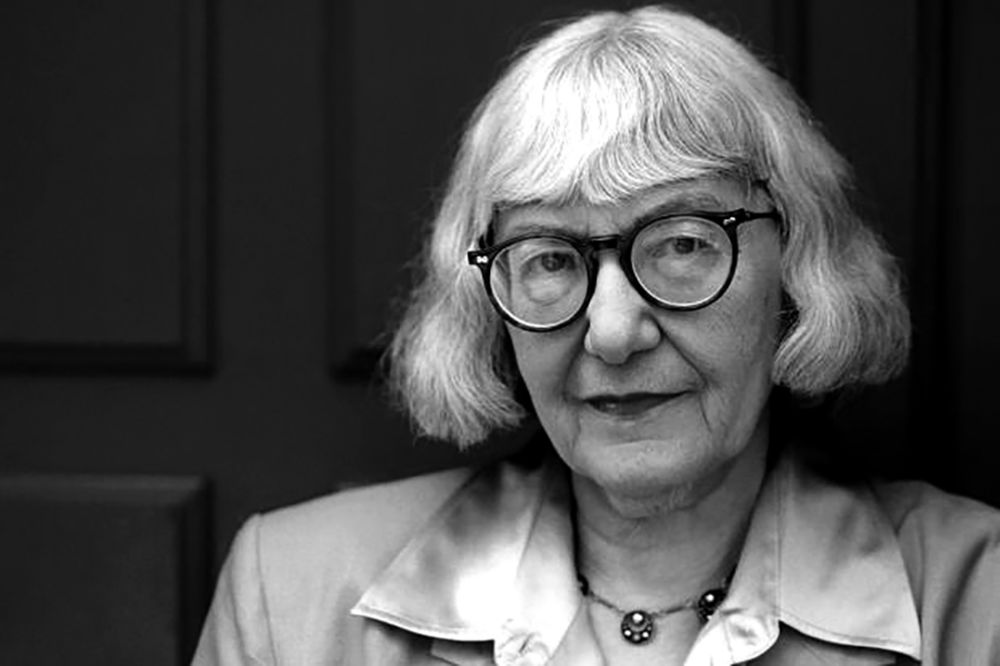Issue 102, Spring 1987

A few words about the collaborative process that yielded the text that follows: Initially, Ozick was concerned that her spoken words would later betray her in print. “Conversation is air,” she said, and asked whether I might submit questions to be answered in writing. I made an acceptable counterproposal: I would ask questions, Ozick would type out her answers.
I sent no questions beforehand. Instead, we sat down at the dining room table of her New Rochelle home on a June day in 1985. I turned on my tape recorder, she turned on her electric typewriter. I asked a question, she typed out her answer and then read it to me. Ozick is a rapid typist and the exchange flowed quickly. It was a conversation, with the typing giving pause for thought. We drank tea and I munched on cookies. Occasionally we would drift into conversation lost to the typescript but captured on tape. The end product was a manuscript, which when amended by her oral comments doubled in length. At a later date, Ozick reviewed and revised her spoken comments. Her changes, true to our intent, were more of a copyedit than a rewrite. “Whoever thinks the taped voice is ‘true to life’ is in error,” she wrote me later. “It is false to life. But I am satisfied with the interview.”
I had feared that the rigorous intellect evidenced in Cynthia Ozick’s essays and stories would be matched in person by a severe manner. But what is most disarming about Ozick in person is her gentleness, sensitiveness, and directness, which put the visitor at ease. At as great a length as I interviewed Ozick, or more, she later interviewed me, with interest, sympathy, and encouragement.
INTERVIEWER
You write all night. Have you always done so?
CYNTHIA OZICK
[Speaking, not yet typing.] Always. I’ve written in daylight, too, but mainly I go through the night.
INTERVIEWER
How does this affect your interaction with the rest of society?
OZICK
It’s terrible. Most social life begins in the evening, when I’m just starting. So when I do go out at night, it means I lose a whole day’s work.
INTERVIEWER
You don’t just start at midnight or whenever you get home?
OZICK
I almost never get home at midnight. I’m always the last to leave a party.
INTERVIEWER
What are your regular working hours?
OZICK
You’re talking as if there’s some sort of predictable schedule. I don’t have working hours. I wake up late. I read the mail, which sometimes is a very complex procedure. Then I eat breakfast with the Times. Then I start priming the pump, which is to read. I answer the letters.
INTERVIEWER
You answer every letter you get?
OZICK
I am compulsive. I take care of everything.
INTERVIEWER
You are also known as a letter writer.
OZICK
No, I don’t feel that. I feel that what I’m doing is conscientiously and responsibly replying. Occasionally, though, an urgent spontaneous letter will fly out—love, polemics, passion.
INTERVIEWER
One of the footnotes in your Forster essay mentions a correspondence you had with Lionel Trilling.
OZICK
Lionel Trilling wrote in response to something I had published about Forster a long time ago. It was an astonishing letter. He said that he realized E. M. Forster was homosexual only years after he had completed his book on Forster’s work. It wasn’t an issue in the society at the time he was writing. The atmosphere didn’t lead anyone to think along those lines, and Trilling himself was unaware. I met Leon Edel at the Academy in May and he’s doing . . . That thing [the tape recorder] is going! I just realized that. I thought I was just talking. Hmmm. [Turns on typewriter, starts typing.] Leon Edel is doing a one-volume reissue of his magnificent biography and he said he’s putting in a lot of new matter about James and the issue of his possible homosexuality because when he was writing that part of the biography it was the fifties and one didn’t talk about such things.
INTERVIEWER
I take it that you’re reading even when you’re working on a piece of fiction.
OZICK
I read in order to write. I read out of obsession with writing.
INTERVIEWER
So, for example, does what you’re reading influence what you write?
OZICK
Not precisely. I read in order to find out what I need to know: To illuminate the riddle.
INTERVIEWER
When you were writing The Cannibal Galaxy, what were you reading then?
OZICK
For that? Nothing at all. Oh, yes, street maps of Paris. Guidebooks about Paris. Anything I could find on the Marais, on the rue des Rosiers, for instance, the Jewish quarter.
INTERVIEWER
What are you reading now, for the novella you’re working on?
OZICK
Swedish stuff! A book with pictures of the Swedish landscape, a book about the Swedish royal family, a Swedish-English dictionary. But the dictionary is dangerous. Looking up how to say a simple (and immaculate) Goddamn, I came up (some Swedish friends later wrote me) with a super four-letter stinger. The novella will be called, I think, “The Messiah of Stockholm.” It takes place in Stockholm. I’d better say no more, or the Muse will wipe it out.




